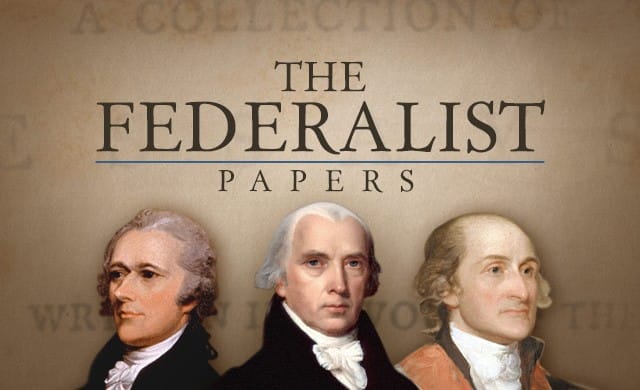
In a world of pessimism a word of optimism is always welcome. This is what Garry Kasparov has to tell in his new book, "
Deep Thinking, where machine intelligence ends and human creativity begins".
Garry Kasparov is a Russian born chess world champion and maybe the best grand master in history. After living in the soviet Azerbaijan he and his family escaped during the collapse of the Soviet Union. A democratic leader and
opponent to the Putin regime he had to move to the US in 2013. He is the chairman of the
Human Rights Foundation and has worked in defense of human rights and freedom for a long time.
This combination of chess master, computer geek and freedom lover permeates in his new book. He is a believer in the potential of humanity under a free systems despite its natural paradoxes.
"Even the most disciplined human mind wanders in the heat of competition. This is both a weakness and a strength of human cognition. Sometimes these undisciplined wanderings only weaken your analysis. Other times they lead to inspiration, to beautiful or paradoxical moves that were not on your initial list of candidates."
In Deep Thinking, Kasparov narrates his experience loosing against
Deep Blue, IBM's supercomputer in a chess match in 1997. When a computer beat the world chess champion it became a tipping point for media and the public in the race of machine against humans. Beyond a historic recollection of the events and some inside details that were not made public back then, Kasparov's book is a call for hope. Having experienced in person the overwhelming brute power of a computer he is not naïve in being optimist.
"Few people in the world know better than I do what it’s like to have your life’s work threatened by a machine. No one was sure what would happen if and when a chess machine beat the world champion."
The main thesis of Kasparov is that we can't know what is going to happen in the future but we should start from accepting that progress is unstoppable and desirable, therefore we shouldn't pretend to defend ourselves by holding it back.
"We don’t get to pick and choose when technological progress stops, or where. Companies are globalized and labor is becoming nearly as fluid as capital. People whose jobs are on the chopping block of automation are afraid that the current wave of tech will impoverish them, but they also depend on the next wave of technology to generate the economic growth that is the only way to create sustainable new jobs. Even if it were possible to mandate slowing down the development and implementation of intelligent machines (how?), it would only ease the pain for a few for a little while and make the situations worse for everyone in the long run."
Instead we should embrace change and formulate tougher and deeper questions. The combination of human creativity and machine brute power is super powerful, instead of fear of Artificial Intelligence - AI (machines replacing humans) we need Intelligence Amplification - IA (machines enhancing humans)
"We aren’t competing against our machines, no matter how many human jobs they can do. We are competing with ourselves to create new challenges and to extend our capabilities and to improve our lives. In turn, these challenges will require even more capable machines and people to build them and train them and maintain them—until we can make machines that do those things too, and the cycle continues. If we feel like we are being surpassed by our own technology it’s because we aren’t pushing ourselves hard enough, aren’t being ambitious enough in our goals and dreams. Instead of worrying about what machines can do, we should worry more about what they still cannot do."
It is in the proper combination of humans and machines that we can reach our full potential.
"A clever process beat superior knowledge and superior technology. It didn’t render knowledge and technology obsolete, of course, but it illustrated the power of efficiency and coordination to dramatically improve results. I represented my conclusion like this: weak human + machine + better process was superior to a strong computer alone and, more remarkably, superior to a strong human + machine + inferior process."
But Kasparov positive vision has a caveat. It won't occur unless we have ambitious projects to pursuit and make important changes in politics, R&D, international cooperation and education.
"America still possesses the unique potential to innovate on a scale that can push the entire world economy forward. A world in which America is content with mediocrity is, literally, a much poorer world.
R&D budgets have been slashed over the years as investors take a skeptical view of anything that doesn't feed the bottom line. Government-backed research tends to favor specific budgets to fit an existing need, not ambitious, open-ended mission to answer big questions.
Trade wars and restrictive immigration regulations will limit America’s ability to attract the best and brightest minds, minds needed for this and every forthcoming Sputnik moment.
That our classrooms still mostly look like they did a hundred years ago isn’t quaint; it’s absurd. How can a teacher or even a stack of books be the sole source of information for kids who can access the sum of all human knowledge in seconds from a device in their pockets."
Kasparov's book is recommended to those worried about the future. I rate 4 stars because the book is a little repetitive and circular which makes the message less powerful and the reading a little weary.
As an additional reference, Tyler Cowen made an interesting interview to Garry Kasparov short ago(see transcript
here) here is the audio.













